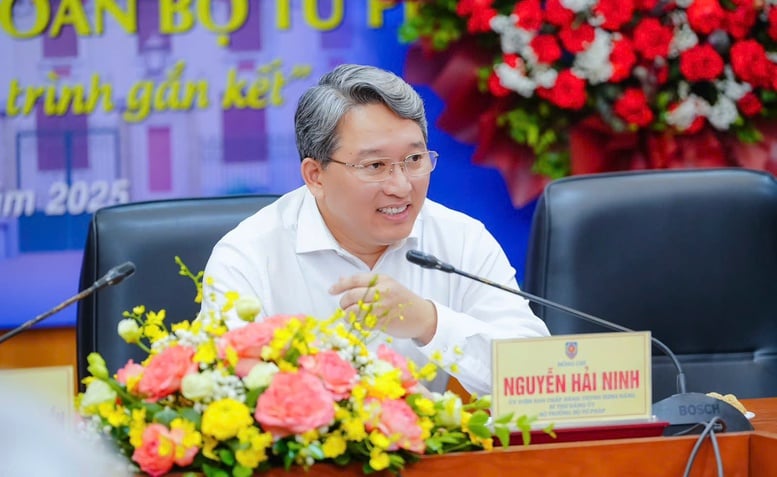
Minister of Justice Nguyen Hai Ninh
The Government has just simultaneously issued 28 Decrees on decentralization, delegation of power, and division of authority between the Government and local authorities at two levels after a process of reviewing the huge volume of tasks and powers of ministries, branches, and authorities at all levels.
Minister of Justice Nguyen Hai Ninh - head of the agency assigned by the Government to guide ministries and ministerial-level agencies in drafting decrees on decentralization, delegation of power, and assignment of authority - had an interview with the press about this content.
Applicable while regulations are still relevant
Dear Minister, it is known that out of the total 1,464 tasks of decentralization and delegation, 1,059 tasks and powers of the Government, Prime Minister, Ministries and Ministers are decentralized and delegated to localities; 1,248 tasks and powers of district-level authorities are adjusted to commune or provincial authorities. So what issues do the newly issued Decrees on decentralization, delegation of powers and delegation of authority focus on and how is the law applied, Dear Minister?
Minister of Justice Nguyen Hai Ninh: The scope of regulation of the decrees on decentralization, delegation, and determination of authority only focuses on regulating the readjustment of authority, mainly from the central agency to local authorities; transferring tasks of district-level authorities to provincial-level local authorities and commune-level local authorities; and at the same time, stipulating new procedures and processes to perform tasks and powers if the change of authority leads to changes in procedures and processes.
Thus, these decrees only stipulate the contents that need to be amended in current laws, including laws, resolutions, and ordinances of the National Assembly and the National Assembly Standing Committee, to decentralize, delegate, and define authority and the order and procedures for performing tasks and powers that are decentralized, delegated, and defined authority, without re-stipulating the contents that are still relevant in these documents.
Therefore, Ministries, branches and localities shall simultaneously apply the provisions of the Decrees and relevant provisions of current laws to perform their assigned tasks and powers.
For situations that may arise, Ministries and localities shall base on the transitional provisions in Article 50 of the Law on Organization of Local Government 2025 and in the Decrees to take timely handling measures.
It should be noted that according to the provisions of Clause 8, Article 54 of the Law on Organization of Local Government, the transition issue when performing work and procedures when implementing two-level local government is regulated.
Accordingly, if the work being handled by the district-level government is not completed by July 1, 2025, or has been completed but then related problems arise, the agency receiving the functions of the district-level government or the newly formed commune-level government is responsible for coordinating with relevant agencies to continue handling it to ensure that work is not interrupted and that normal activities of society, people, and businesses are not affected.
In case the work content and procedures are related to 2 or more new commune-level administrative units or have complicated content, the Chairman of the Provincial People's Committee shall, based on the provisions at Point g, Clause 2 and Clause 3, Article 11 of this Law, be responsible for directing the settlement.
At the same time, Clause 8, Article 54 of the Law also stipulates the principles of application. In case the Government's legal documents regulating the decentralization, delegation, and division of authority of local authorities have provisions on the settlement of the tasks and procedures prescribed in this Clause, they shall be implemented according to the Government's regulations.
Continue to review and promulgate new laws
As is known, the issuance of 28 Decrees was carried out in a very short time to meet urgent work requirements when implementing a two-level local government. How long will the application of the decrees on decentralization, delegation, and division of authority take, Minister?
Minister of Justice Nguyen Hai Ninh: In principle, the Decrees on decentralization, delegation, and determination of authority are only legally effective until March 1, 2027.
The contents on decentralization, delegation, division of authority and implementation procedures in these Decrees will be replaced by provisions of new/amended and supplemented laws, resolutions, decrees. Immediately after the Decree is issued until March 1, 2027, ministries and branches must review current laws to propose amendments, supplements and new issuances of relevant laws, resolutions, ordinances and decrees to adjust them in accordance with the new principles and provisions on decentralization, delegation and delegation.
During the implementation process, ministries, branches and localities need to evaluate the effectiveness of the implementation of decentralized tasks and powers to recommend competent authorities to review and adjust, ensuring suitability in terms of authority, capacity and practical conditions.
It is known that the draft Law amending and supplementing a number of articles of the Law on Promulgation of Legal Documents has been submitted to the National Assembly, expected to be passed on June 25, 2025, effective from July 1, 2025 to conform to the two-level local government model. What specific provisions does the draft Law supplement, Minister?
Minister of Justice Nguyen Hai Ninh: The Law amending and supplementing a number of articles of the Law on Promulgation of Legal Documents has supplemented the authority to promulgate legal documents of agencies and individuals. Specifically:
The Chairman of the Provincial People's Committee issues decisions to decentralize and implement decentralized tasks and powers; measures to direct and manage the activities of the People's Committee, and coordinate activities between specialized agencies and other agencies and organizations under the People's Committee.
People's Councils of communes, wards and special zones issue resolutions to regulate issues assigned by law and resolutions of the National Assembly; perform decentralized tasks and powers.
The People's Committee at the commune level issues decisions to regulate issues assigned by law and resolutions of the National Assembly; decentralize and perform decentralized tasks and powers.
In addition, at the same time as the Law on Organization of Local Government adds a provision that the Provincial People's Council decentralizes to the People's Committee of the same level or the Commune People's Council (Clause 1, Article 13), the draft Law amending and supplementing a number of articles of the Law on Promulgation of Legal Documents also adds a provision that the Provincial People's Council issues resolutions to regulate decentralization and implement decentralized tasks and powers.
In addition, the draft Law amending and supplementing a number of articles of the Law on Promulgation of Legal Documents supplements regulations related to the validity, responsibility for inspection, review, and systematization of legal documents of the competent entities issuing the above documents and transitional provisions to handle issues related to documents of district-level local authorities.
There are concerns that due to the urgent time and the requirement for thorough decentralization and delegation of authority by ministries, branches and localities, there may be unclear tasks and powers, and not really reasonable in terms of authority, order and implementation procedures. Are there any regulations to prevent this situation, Minister?
Minister of Justice Nguyen Hai Ninh: In order to effectively organize the implementation of local tasks and powers, Clause 7, Article 13 of the Law on Organization of Local Government has very "open" provisions to empower local governments. Specifically as follows:
- In case it is necessary to change the order, procedures and authority currently prescribed in the legal documents of the superior state agencies to implement decentralization, the People's Council, People's Committee, and Chairman of the People's Committee at the provincial level shall adjust those regulations in the legal documents on decentralization issued by them to perform the decentralized tasks and powers, ensuring the requirements of administrative reform in the direction of reducing administrative procedures, promoting the application of information technology, digital transformation in handling administrative procedures, not prescribing additional components of the dossier, not increasing the requirements, conditions and time for handling the procedures currently applied.
The Chairman of the Provincial People's Committee is responsible for publicizing administrative procedures that have changed or adjusted the provisions in this clause according to the provisions of law and then is responsible for synthesizing and reporting to the central state management agency of the relevant industry and field on the adjustment of procedures, processes, and authority to perform the tasks and powers delegated in his/her locality.
- For decentralized tasks that are not suitable to the authority, conditions, capacity, resources, functions and tasks of the locality, the decentralized agency can make recommendations to the decentralized agency for adjustment; promptly propose amendments and supplements to relevant laws.
At the same time, Clause 9, Article 54 of the Law on Organization of Local Government also specifically stipulates cases where it is necessary to resolve issues arising when organizing local governments at the provincial and communal levels, in which the People's Council and People's Committee at the provincial level are responsible for reviewing, issuing documents or authorizing the issuance of documents to resolve issues arising within the scope of their tasks and powers; may issue administrative documents to guide the resolution of issues arising if the conditions specified in Clause 10, Article 54 of the Law are met, and at the same time organize the development and issuance of legal documents according to their competence or submit to competent agencies and persons to amend, supplement, and issue legal documents to adjust the content prescribed in administrative documents or the content authorized for issuance.
Does the Minister have any notes for localities in carrying out this very important and also very difficult task?
Minister of Justice Nguyen Hai Ninh: With a large number of tasks and powers that are decentralized, delegated, and assigned to authority, local authorities need to proactively develop and issue documents under their authority to guide the implementation of tasks and powers that are decentralized, delegated, and assigned to authority when necessary or in cases where the provisions in the Decrees are unclear or unreasonable in terms of authority, order, and procedures; promulgate administrative procedures under their authority to ensure they take effect simultaneously with the Decrees.
In addition, local authorities need to proactively develop plans to implement tasks, decentralized powers, decentralization, and authority; organize conferences, training, and guidance for officials and civil servants. On the other hand, it is necessary to prepare necessary conditions, resources, facilities, and human resources to ensure the implementation of tasks. In the process of implementing the Decrees, if there are any difficulties or problems, they need to promptly respond to the ministries managing the sectors and fields or make recommendations to the Government, Government leaders, and leaders of ministries and sectors for solutions, guidance, and answers; contact the hotlines of the Government, ministries, and ministerial-level agencies.
Notably, the Decrees on decentralization, delegation, and assignment of authority stipulate the integration of online implementation of many administrative procedures (requiring the connection of databases and information lookup; people do not have to provide information if they already have information in the databases) and the implementation of the "non-territorial" policy in receiving and handling administrative procedures. To ensure the good implementation of these requirements, it is recommended that localities prioritize investment in equipment; regularly update and clean databases according to requirements and tasks; and provide training on information technology for civil servants/public employees/workers participating in receiving and handling administrative procedures.
Thank you very much Minister!
Individuals and organizations do not need to change documents until they expire.
Article 14 of Resolution No. 76/2025/UBTVQH15 on administrative unit arrangement in 2025 stipulates that "The conversion of documents for individuals and organizations shall be carried out in accordance with the provisions of Article 10 of Resolution No. 190/2025/QH15 dated February 19, 2025 of the National Assembly regulating the handling of a number of issues related to the arrangement of the state apparatus".
Accordingly, Article 10 of Resolution 190/2025/QH15 stipulates: Documents and papers that have been issued or granted by competent agencies and positions before the reorganization of the state apparatus but have not expired or have not expired shall continue to be applied and used in accordance with the provisions of law until they expire or are amended, supplemented, replaced, abolished, canceled, or revoked by the agency or position receiving the functions, tasks, and powers or the competent agency or person.
Dieu Anh
Source: https://baochinhphu.vn/cac-nghi-dinh-ve-phan-cap-phan-quyen-chi-co-hieu-luc-den-ngay-1-3-2027-102250618110941824.htm










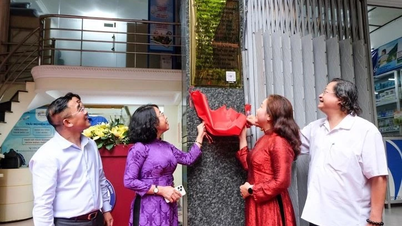

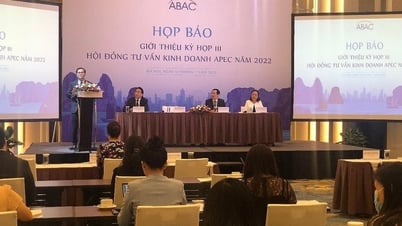


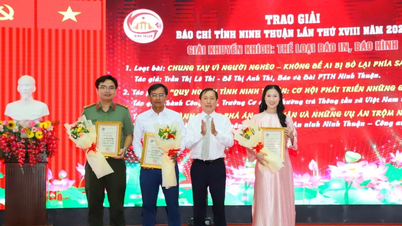







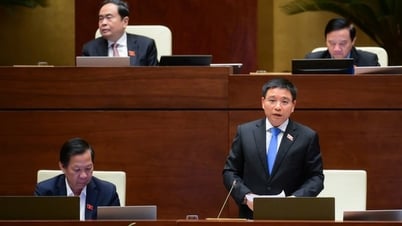
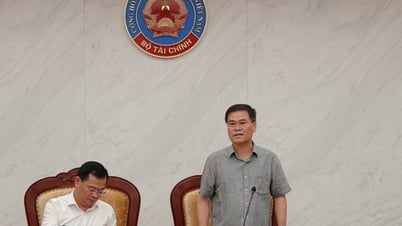

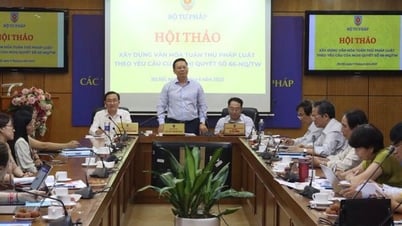
















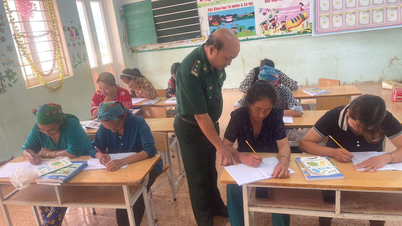







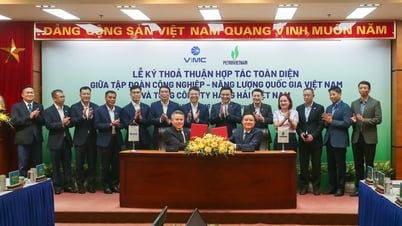







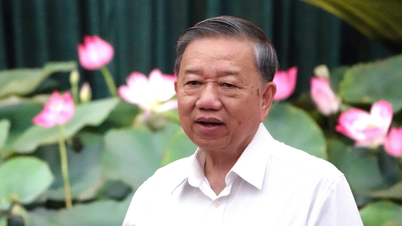




















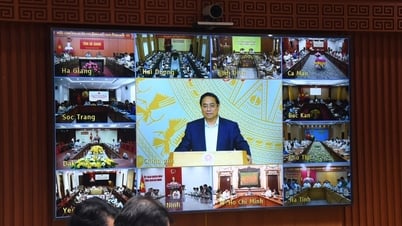


















Comment (0)